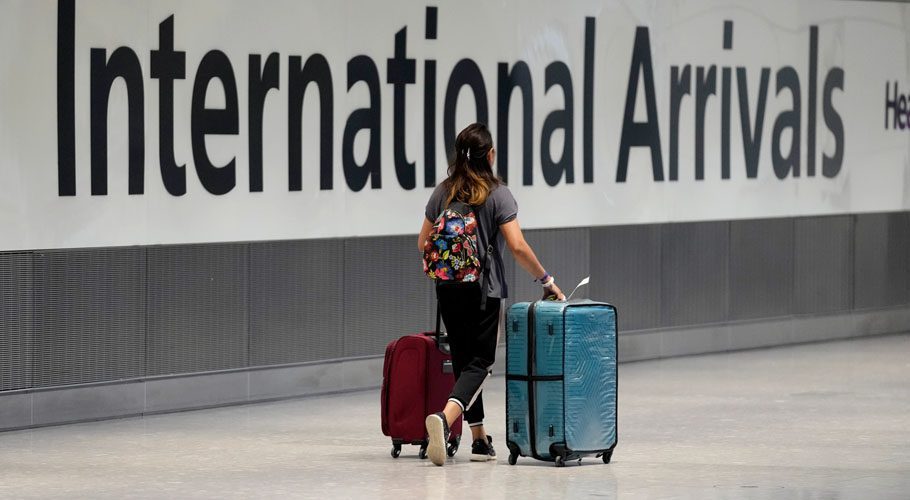WASHINGTON (Reuters): The White House will lift COVID-19 travel restrictions for fully vaccinated international visitors starting November 8, ending 21 months of historic restriction.
The unprecedented travel restrictions kept millions of visitors out of the United States from China, Canada, Mexico, India, Brazil, much of Europe, and elsewhere; shrunk U.S. tourism; and hurt border community economies. They prevented many loved ones and foreign workers from reuniting with families.
“Oh how I’ve missed Christmas in NY,” Alexandros Koronakis, an executive with AT&T Inc in Brussels, wrote on Twitter. U.S. allies had heavily lobbied the Biden administration to lift the rules. Many praised Friday’s announcement, including Sweden’s ambassador to the United States Karin Olofsdotter, who called it ‘very welcoming news’.
White House spokesman Kevin Munoz confirmed the November 8 date on Twitter, adding the policy “is guided by public health, stringent, and consistent.” Restrictions on non-U.S. citizens were first imposed on air travelers from China in January 2020 by then-President Donald Trump and then extended to dozens of other countries, without any clear metrics for how and when to lift them.
Curbs on non-essential travelers at land borders with Mexico and Canada have been in place since March 2020 to address the COVID-19 pandemic. U.S. airline, hotel, and cruise industry stocks rose on the news, including American Airlines (AAL.O), up 2.8 percent; Marriott International Inc (MAR.O), up 3.7 percent; and Carnival Corp (CCL.N), up 0.9 percent.
U.S. international air passenger traffic was down 43 percent in August and overall passenger air traffic was down 21 percent over pre-pandemic levels, the U.S. Transportation Department said Friday.
Airlines have seen an increase in international ticket sales in recent weeks after the White House announced plans to lift the restrictions, Nick Calio, chief executive of the Airlines for America industry trade group, said in a statement.




































